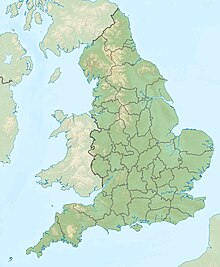Battle of Preston (1715)
| Battle of Preston | |||||||
|---|---|---|---|---|---|---|---|
| Part of the Jacobite Rising of 1715 Also known as the 15 | |||||||
|
|||||||
| Belligerents | |||||||
|
|
|
||||||
| Commanders and leaders | |||||||
| Charles Wills |
Mackintosh of Borlum William Maxwell, 5th Earl of Nithsdale James Radclyffe, 3rd Earl of Derwentwater Thomas Forster, M.P for Northumberland |
||||||
| Strength | |||||||
| 2,500–3,000 | 1,700 | ||||||
|
|
|||||||
Coordinates: 53°45′14″N 2°42′04″W / 53.754°N 2.701°W
The Battle of Preston (9–14 November 1715), also referred to as the Preston Fight, was fought during the Jacobite Rising of 1715 (often referred to as the First Jacobite Rising, or Rebellion by supporters of the Hanoverian government).
The Jacobites moved south into England with little opposition, and by the time they reached Preston in Lancashire had grown to about 4,000 in number. Their horse troops entered Preston on the night of 9 November 1715, and as they approached two troops of dragoons and part of a militia regiment retreated to Wigan.
General Charles Wills was ordered to halt their advance, and left Manchester on 11 November with six regiments, arriving on the 12th. The Jacobite leader Thomas Forster, a Northumberland squire, had intended to move on that day, but, learning of Wills's approach, decided to stay and made the mistake of withdrawing troops from a strong defensive position at Ribble bridge, 0.5 miles (0.80 km) outside Preston.
The Jacobites had barricaded the principal streets of Preston, and Wills ordered an immediate attack, which met with fire from the barricades and from houses, resulting in the Hanoverian attack being repulsed with heavy losses. Wills then had houses set on fire, with the aim of fires spreading along to the Jacobite positions, and the Jacobites tried to do the same to houses taken as government positions. At night, Wills's order to light the government-held positions for identification helped the Jacobite snipers, but overnight many Jacobites left the town. The legend of these actions is recounted in a well-known Lancashire ballad, Lo! The Bird is Fallen.
...
Wikipedia

